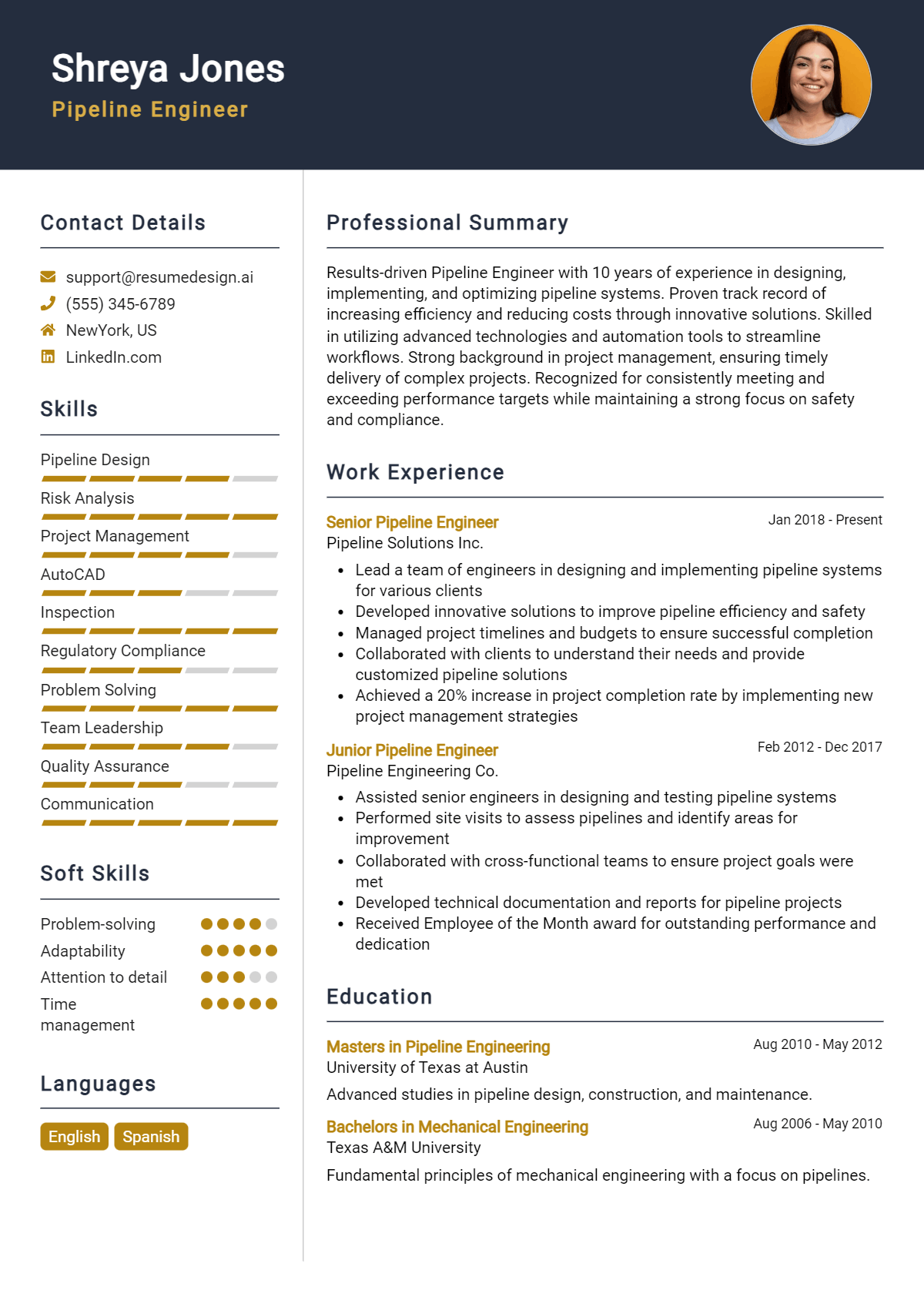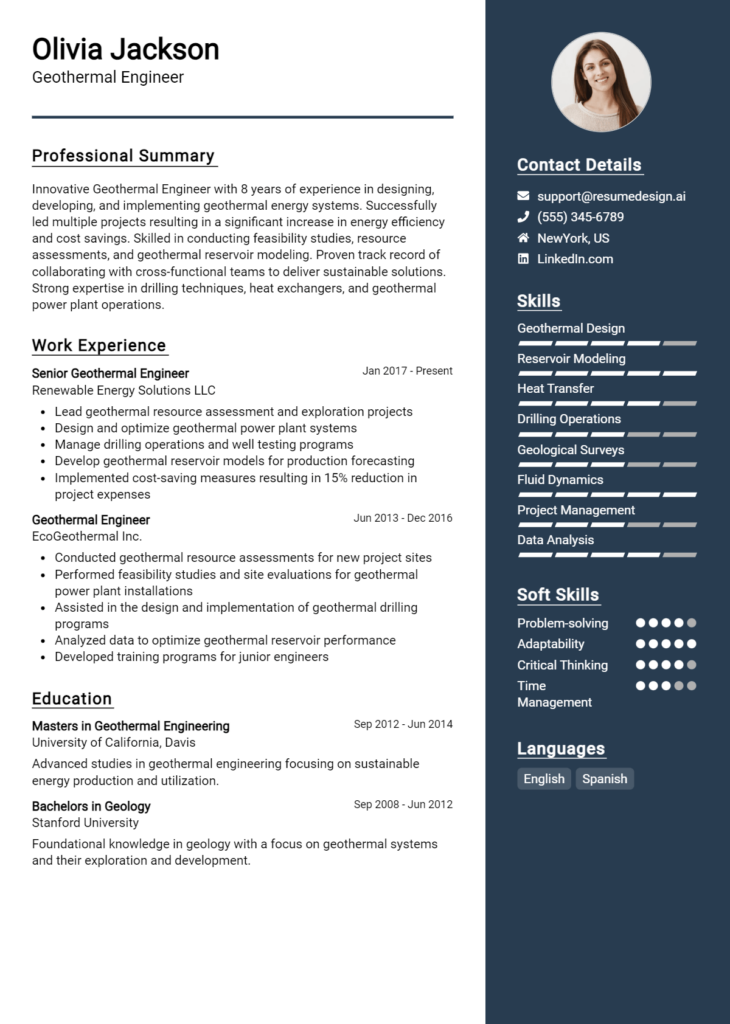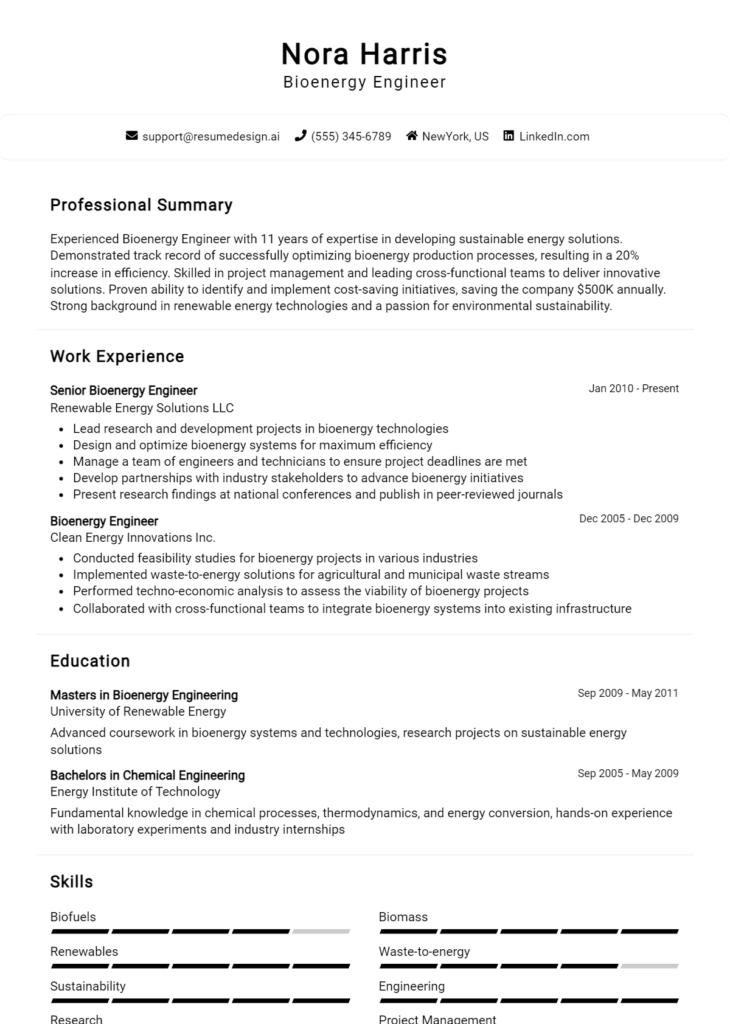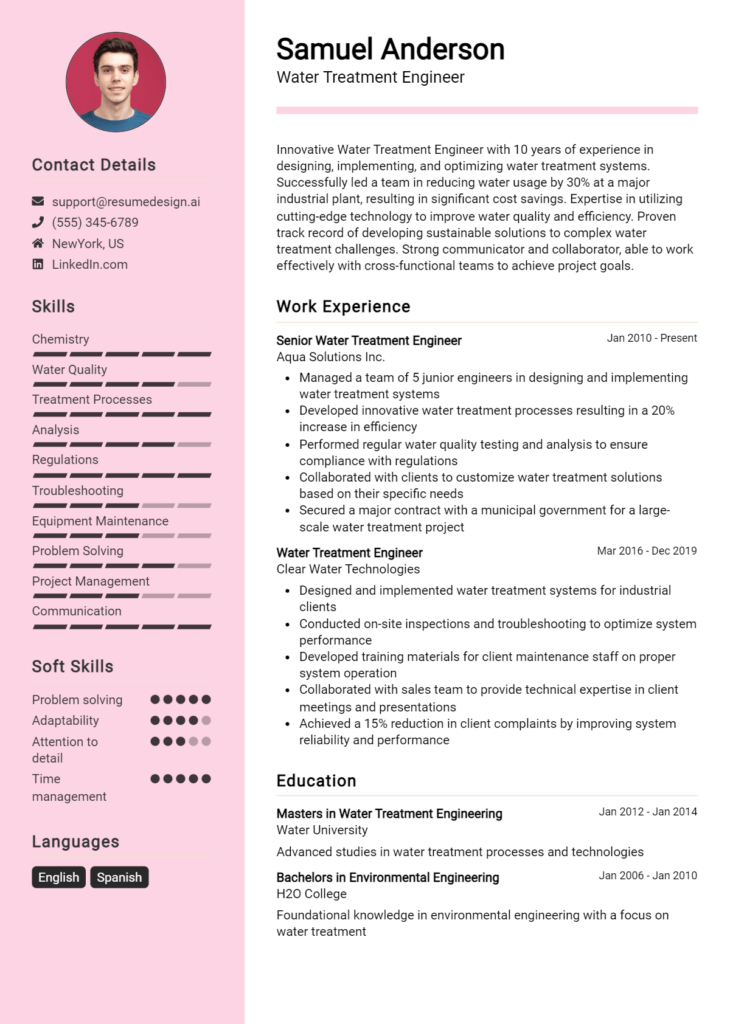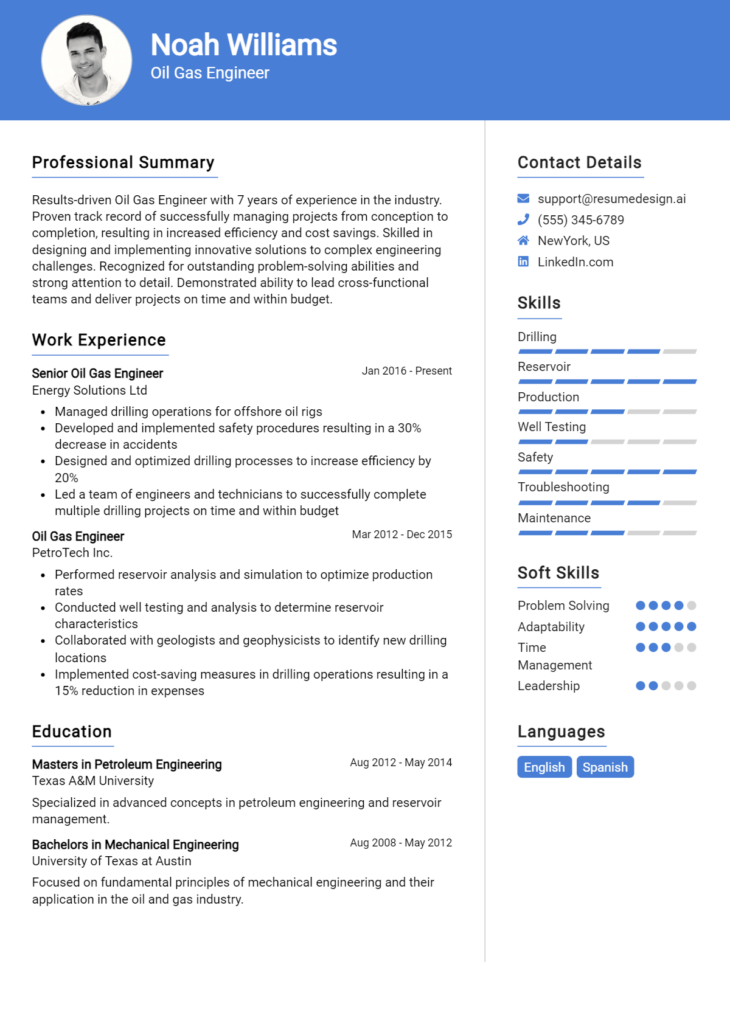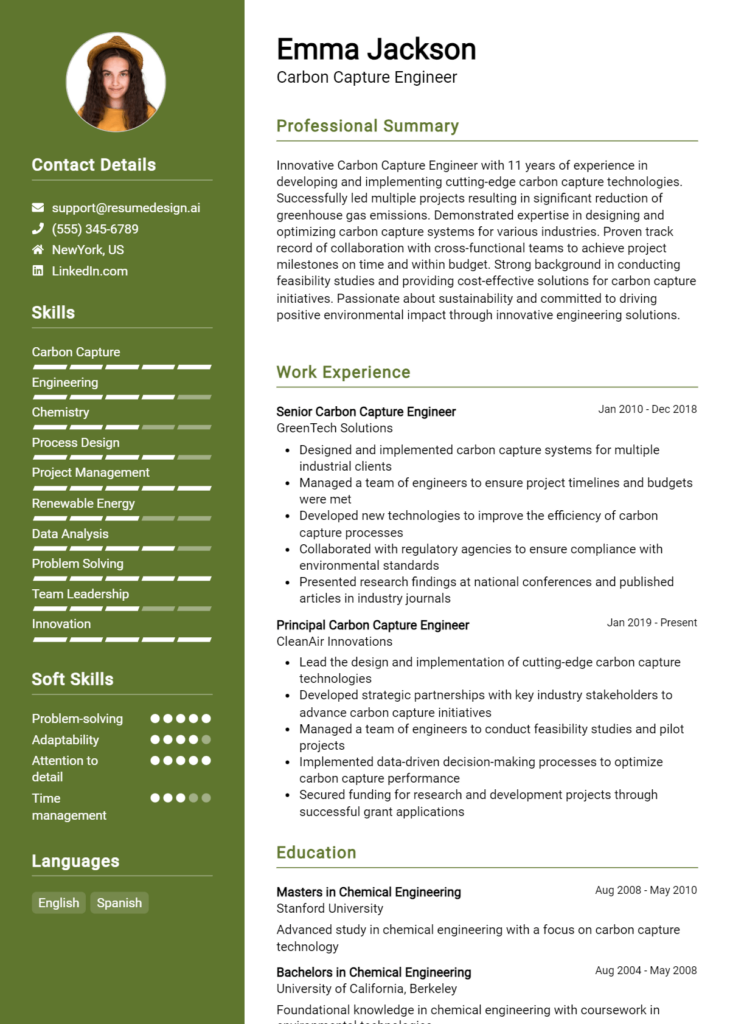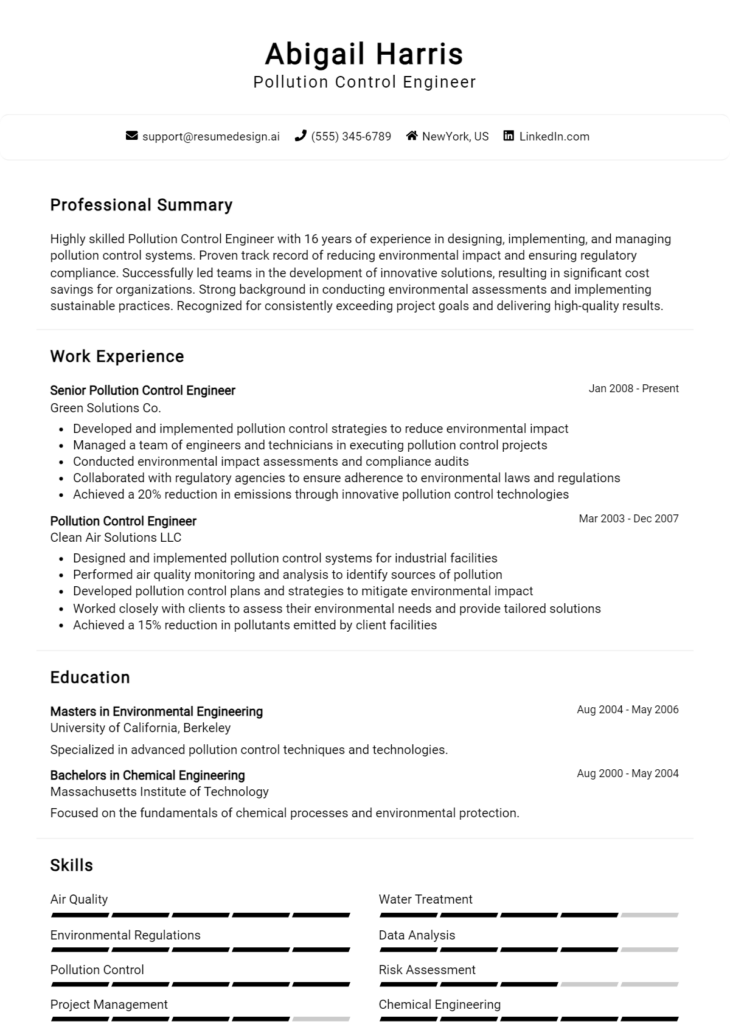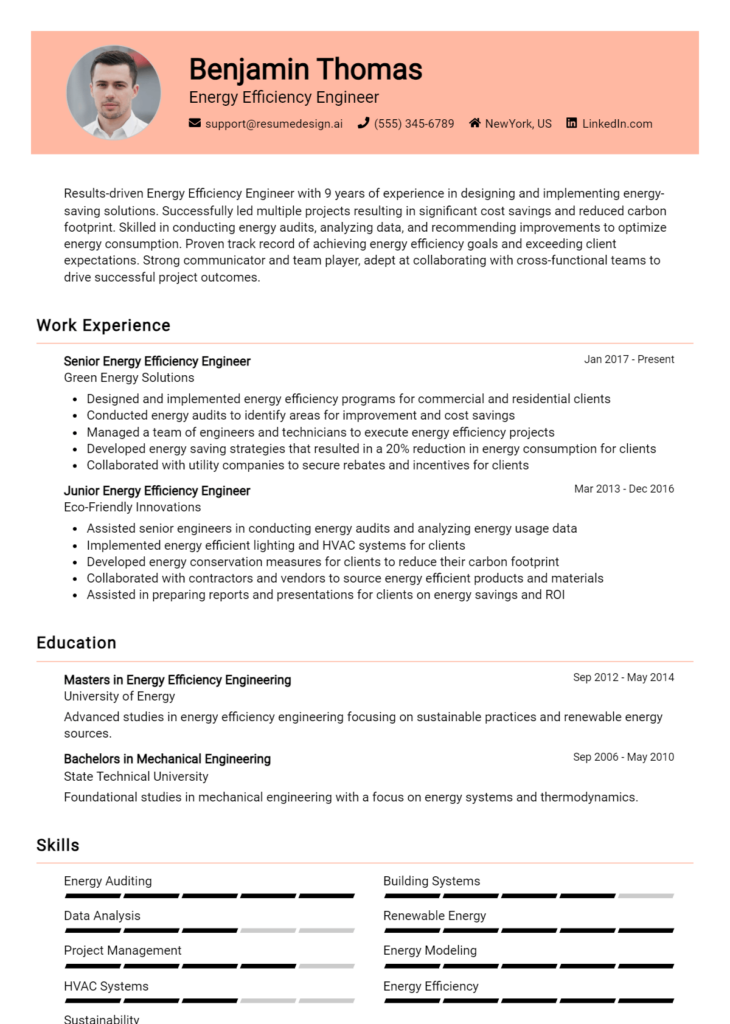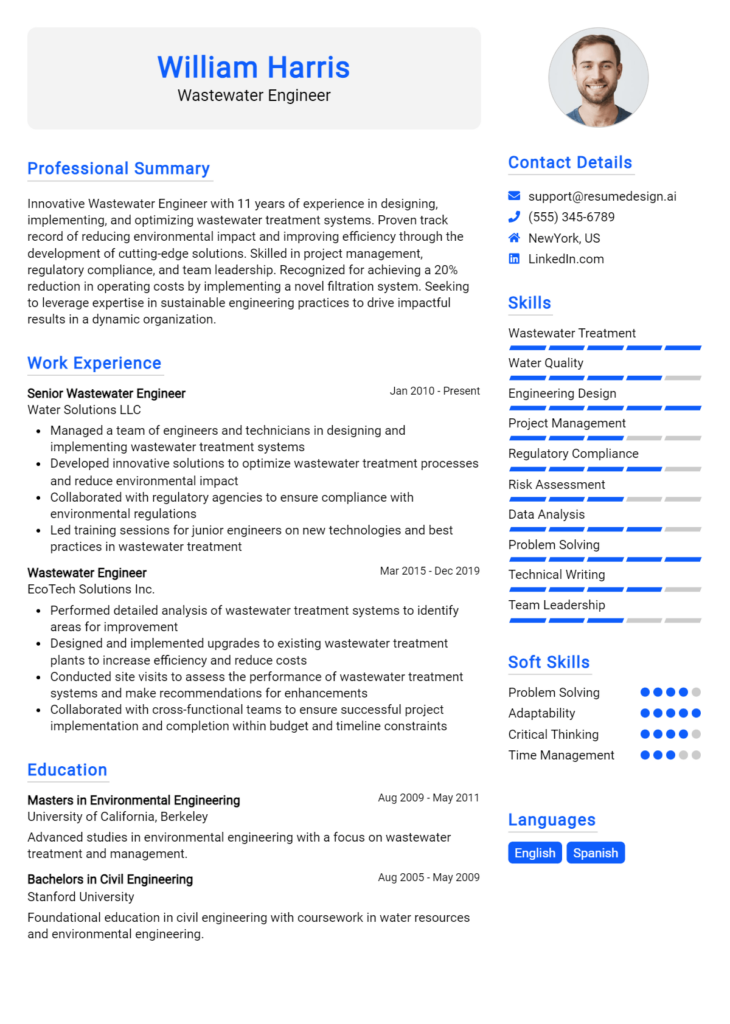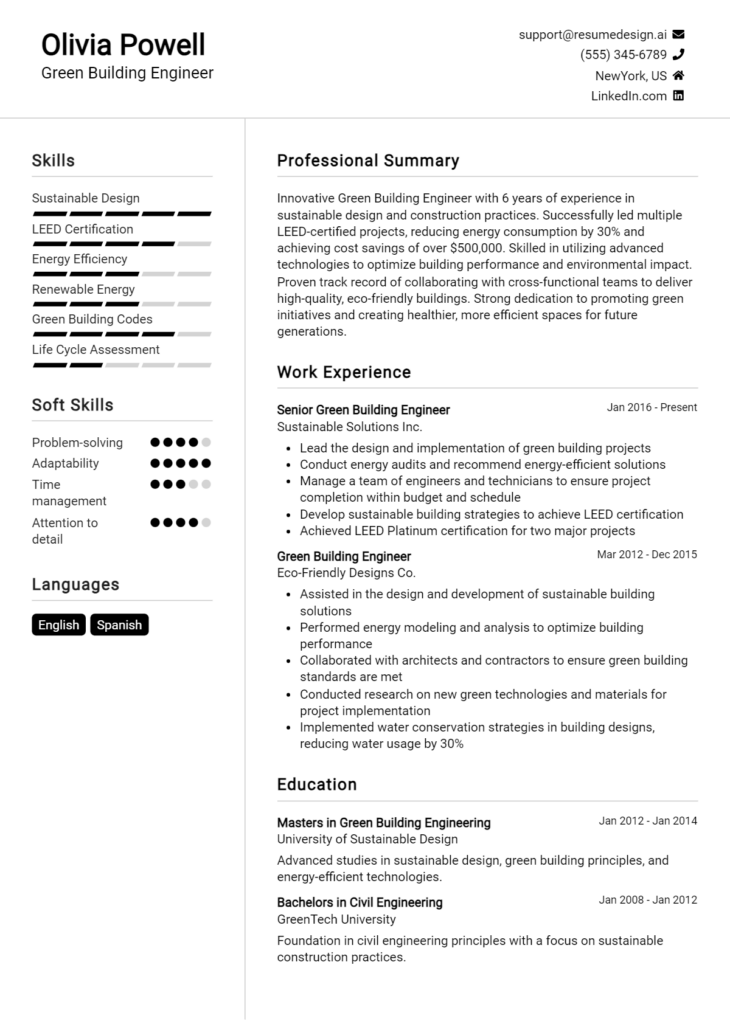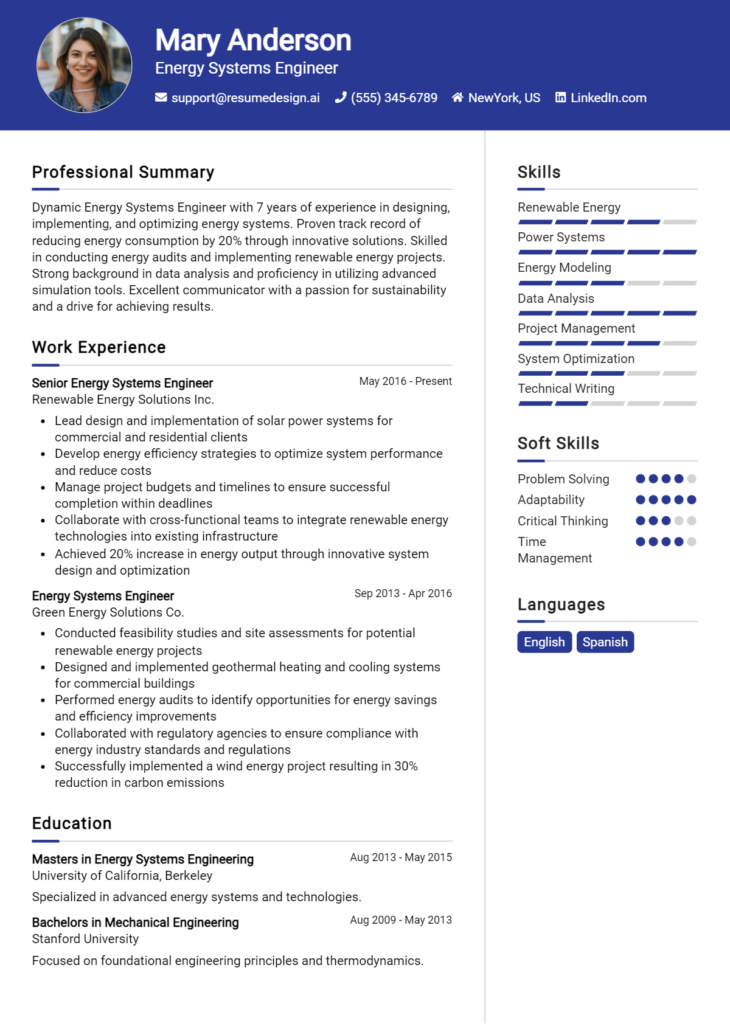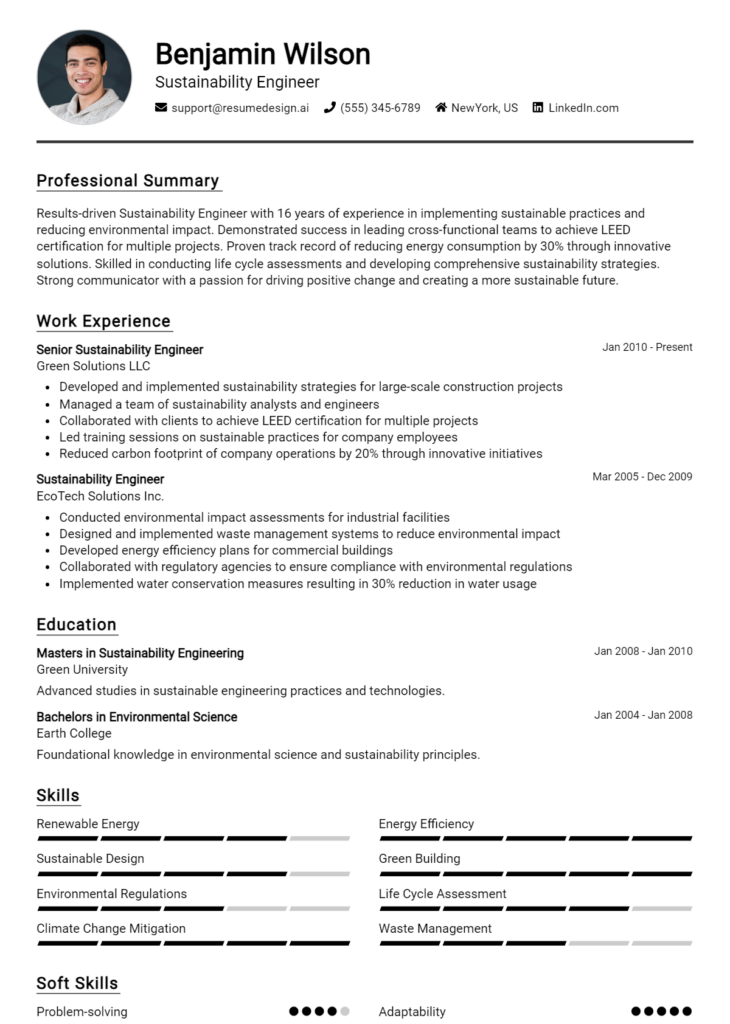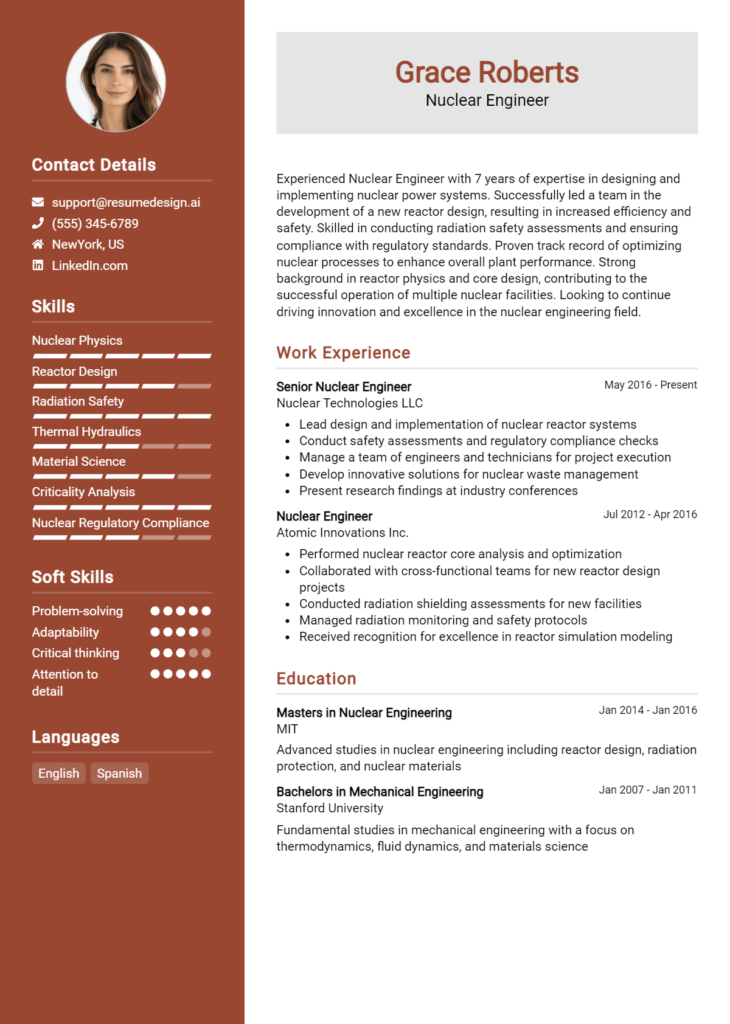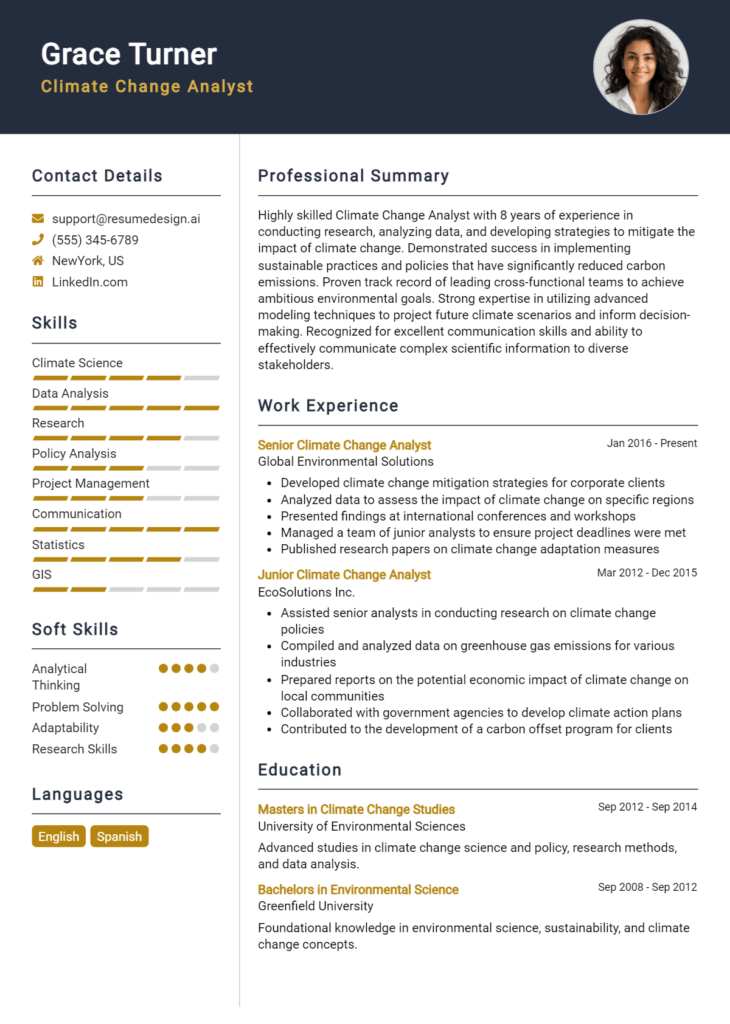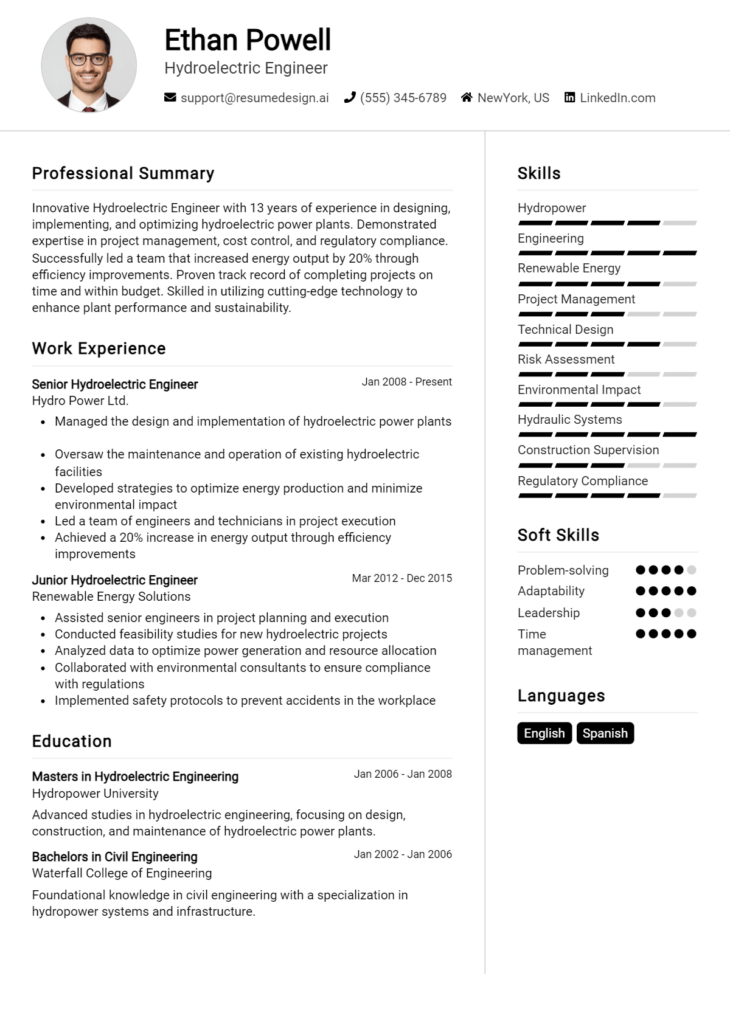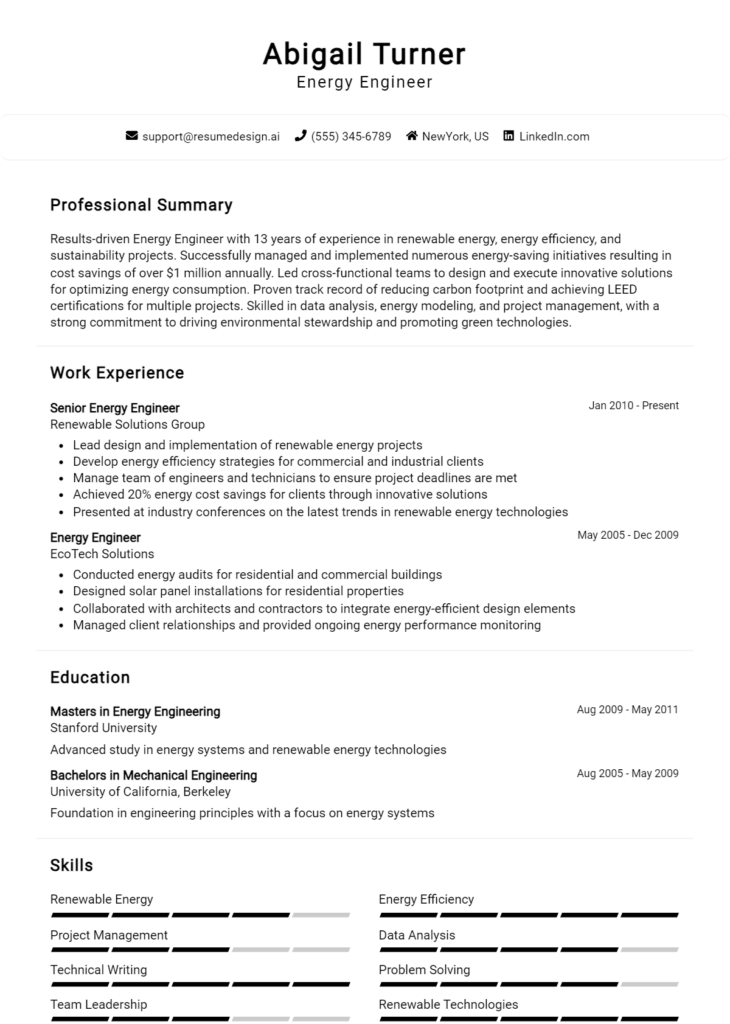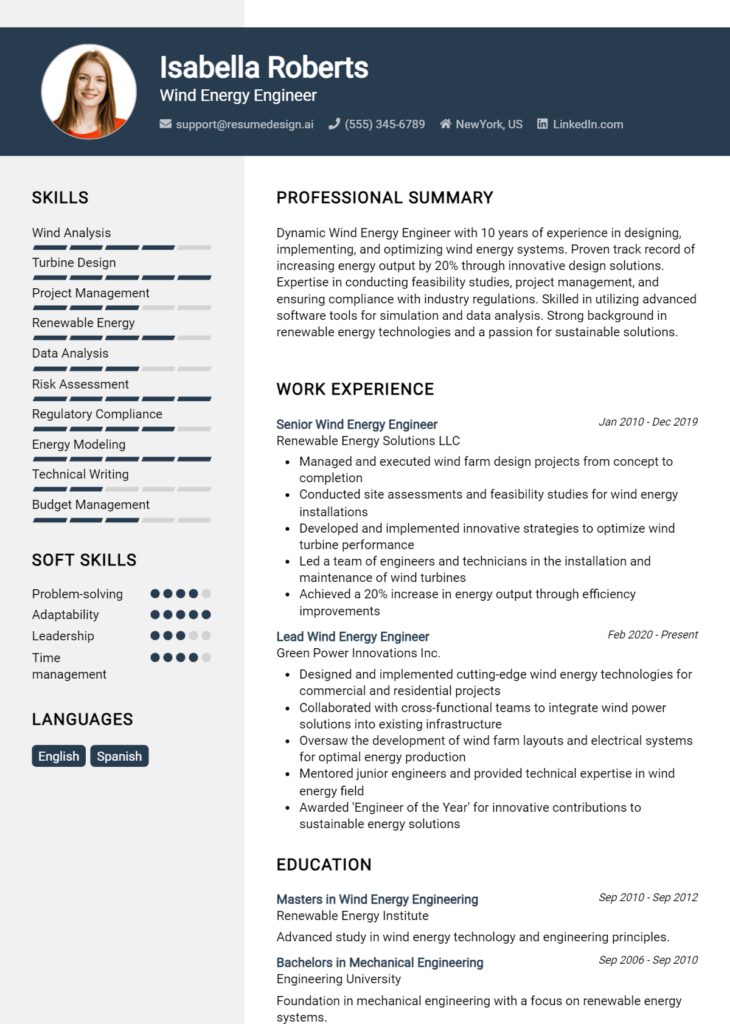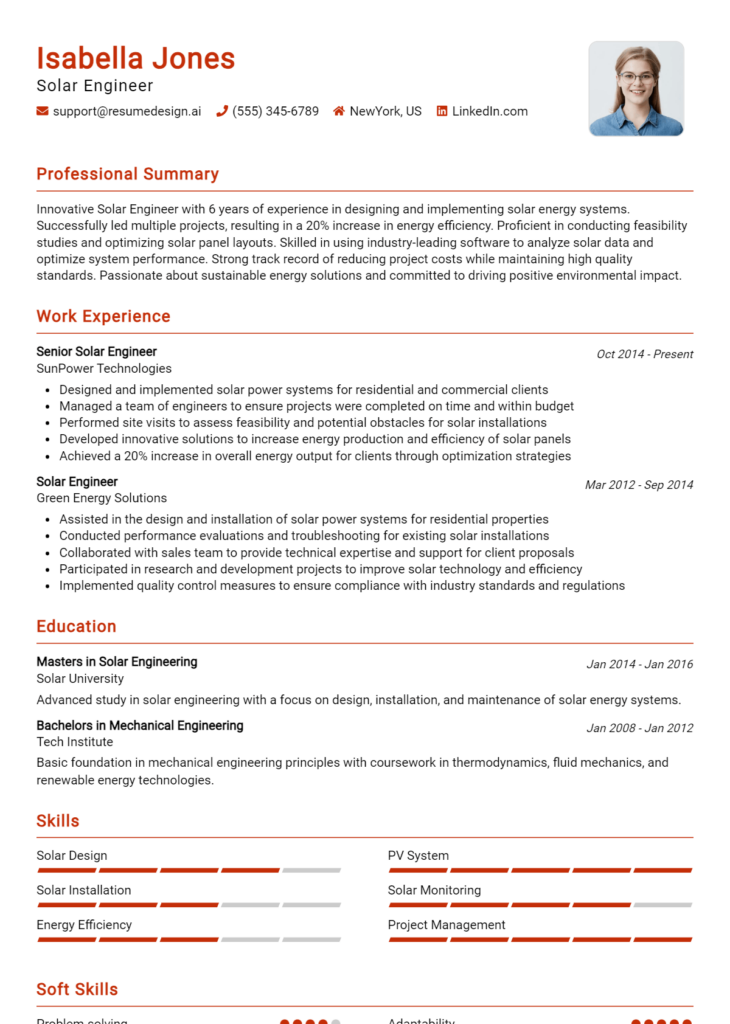Pipeline Engineer Core Responsibilities
A Pipeline Engineer plays a crucial role in the design, construction, and maintenance of pipeline systems, requiring a blend of technical, operational, and problem-solving skills. This position often serves as a bridge between engineering, project management, and environmental compliance departments, ensuring seamless communication and collaboration. Essential skills include proficiency in pipeline design software, knowledge of industry regulations, and the ability to troubleshoot issues efficiently. These competencies significantly contribute to an organization’s goal of delivering safe and efficient pipeline operations. A well-structured resume can effectively highlight these qualifications, showcasing the engineer's ability to drive project success.
Common Responsibilities Listed on Pipeline Engineer Resume
- Design and analyze pipeline systems for optimal performance.
- Conduct feasibility studies and risk assessments.
- Collaborate with cross-functional teams to ensure project alignment.
- Oversee the installation and commissioning of pipeline operations.
- Ensure compliance with safety and environmental regulations.
- Perform regular inspections and maintenance of pipeline systems.
- Develop and implement pipeline integrity management programs.
- Prepare technical reports and documentation for stakeholders.
- Provide technical support and training to field personnel.
- Evaluate and recommend improvements to existing pipeline systems.
- Manage project timelines and budgets effectively.
- Utilize advanced software tools for modeling and simulations.
High-Level Resume Tips for Pipeline Engineer Professionals
A well-crafted resume is crucial for Pipeline Engineer professionals as it serves as the first impression a candidate makes on potential employers. In a competitive job market, your resume must effectively reflect your skills, achievements, and unique contributions to the field. It’s not just a list of past jobs; it’s a marketing tool that highlights your expertise in pipeline design, construction, and maintenance. This guide will provide practical and actionable resume tips specifically tailored for Pipeline Engineer professionals, ensuring that your application stands out and captures the attention of hiring managers.
Top Resume Tips for Pipeline Engineer Professionals
- Tailor your resume to the job description by including relevant keywords and phrases that align with the specific role.
- Showcase your experience with pipeline design software and industry-specific tools, such as AutoCAD or PLS-CADD.
- Quantify your achievements by including metrics, such as the number of projects completed, cost savings, pipeline lengths, or safety improvements.
- Highlight your understanding of regulatory compliance and safety standards relevant to pipeline engineering.
- Include a skills section that emphasizes both technical skills (e.g., hydraulic analysis) and soft skills (e.g., teamwork and communication).
- Detail your education and any certifications, such as PE (Professional Engineer) or PMP (Project Management Professional), that are pertinent to the field.
- Utilize a clear and professional format that enhances readability, using bullet points and section headings for easy navigation.
- Incorporate industry-specific terminology to demonstrate your familiarity with the field and showcase your expertise.
- Consider including a brief summary statement at the top of your resume that encapsulates your career highlights and objectives.
By implementing these tips, Pipeline Engineer professionals can significantly increase their chances of landing a job in the field. A tailored and well-structured resume not only showcases your qualifications but also demonstrates your professionalism and attention to detail, making you a compelling candidate in the competitive pipeline engineering job market.
Why Resume Headlines & Titles are Important for Pipeline Engineer
In the competitive field of pipeline engineering, a well-crafted resume headline or title plays a crucial role in capturing the attention of hiring managers. A strong headline serves as a powerful first impression, summarizing a candidate's key qualifications and expertise in a concise, impactful statement. It should be directly related to the job being applied for, ensuring that it resonates with the specific needs of the employer. By highlighting relevant skills and experiences, a compelling headline encourages recruiters to delve deeper into the resume, ultimately increasing the chances of landing an interview.
Best Practices for Crafting Resume Headlines for Pipeline Engineer
- Keep it concise: Aim for one to two impactful sentences.
- Be role-specific: Tailor the headline to the pipeline engineering position you are applying for.
- Highlight key skills: Incorporate essential skills that align with the job description.
- Showcase experience: Mention years of experience or notable accomplishments related to the field.
- Use industry keywords: Utilize terminology that is relevant to pipeline engineering to pass through applicant tracking systems.
- Avoid jargon: Ensure the language is clear and understandable to a broad audience.
- Make it actionable: Use strong verbs to convey a sense of achievement and initiative.
- Reflect your value: Convey how you can contribute to the organization’s success through your expertise.
Example Resume Headlines for Pipeline Engineer
Strong Resume Headlines
Experienced Pipeline Engineer with 10+ Years in Project Management and Design Optimization
Results-Driven Pipeline Engineer Specializing in Safety Compliance and Risk Mitigation
Innovative Pipeline Engineer with Proven Track Record in Reducing Costs and Improving Efficiency
Dedicated Pipeline Engineer with Expertise in Environmental Regulations and Sustainable Practices
Weak Resume Headlines
Engineer Looking for Opportunities
Pipeline Engineer Seeking Job
Experienced Professional in Engineering
The strong headlines are effective because they are specific, demonstrate relevant expertise, and highlight the candidate's unique strengths in pipeline engineering. They immediately communicate value and relevance to the hiring manager, making it clear why the candidate would be a great fit for the role. In contrast, the weak headlines lack specificity and fail to convey any unique qualifications, making them forgettable and unremarkable in a pile of resumes. They do not capture the attention or spark the interest of recruiters, which can lead to missed opportunities for the candidates who use them.
Writing an Exceptional Pipeline Engineer Resume Summary
A resume summary is a crucial component for a Pipeline Engineer as it serves as the first impression that a hiring manager receives. A well-crafted summary quickly captures attention by showcasing key skills, relevant experience, and notable accomplishments related to the pipeline engineering field. It should be concise, impactful, and tailored to the specific job description, effectively setting the stage for the rest of the resume. By articulating the candidate's unique qualifications, the summary can significantly enhance the chances of landing an interview.
Best Practices for Writing a Pipeline Engineer Resume Summary
- Quantify Achievements: Use numbers to demonstrate your impact, such as cost savings or project completions.
- Focus on Key Skills: Highlight specific skills that are relevant to pipeline engineering, such as project management, design software proficiency, or regulatory compliance.
- Tailor for the Job Description: Customize the summary to align closely with the requirements and responsibilities outlined in the job posting.
- Keep it Concise: Aim for 2-4 sentences that succinctly convey your qualifications without unnecessary details.
- Highlight Relevant Experience: Mention years of experience in the field and notable projects you’ve worked on.
- Use Action Verbs: Start sentences with strong action verbs to convey confidence and proactivity.
- Showcase Industry Knowledge: Reference familiarity with industry standards, safety regulations, or emerging technologies in pipeline engineering.
- Emphasize Problem-Solving Skills: Mention your ability to overcome challenges and contribute to project success.
Example Pipeline Engineer Resume Summaries
Strong Resume Summaries
Results-driven Pipeline Engineer with over 8 years of experience in designing and overseeing pipeline systems for oil and gas projects, achieving a 20% reduction in operational costs through innovative engineering solutions.
Detail-oriented Pipeline Engineer skilled in project management and regulatory compliance, successfully completed 15 major projects on time and under budget, enhancing safety protocols and reducing incidents by 30%.
Dedicated Pipeline Engineer with expertise in CAD software and pipeline integrity assessments, leading to a 25% increase in system reliability for a major client, while also mentoring junior engineers to foster team development.
Weak Resume Summaries
Experienced engineer looking for a job in pipeline engineering.
Knowledgeable about pipeline systems and eager to work in the engineering field.
The strong resume summaries are effective because they provide specific, quantifiable achievements and relevant skills that align with the role of a Pipeline Engineer. They clearly demonstrate the candidate's value to potential employers. In contrast, the weak summaries lack specificity and quantifiable outcomes, making them too generic to capture the interest of hiring managers. They fail to convey the candidate's unique qualifications or the impact of their work, which diminishes their effectiveness in a competitive job market.
Work Experience Section for Pipeline Engineer Resume
The work experience section of a Pipeline Engineer resume is a critical component that provides prospective employers with insight into a candidate's technical prowess, leadership capabilities, and commitment to delivering high-quality projects. This section not only highlights the candidate's relevant experiences but also showcases their ability to manage teams effectively and contribute to successful project outcomes. By quantifying achievements and aligning experiences with industry standards, candidates can demonstrate their value in a competitive job market, making it essential for securing interviews and advancing their careers.
Best Practices for Pipeline Engineer Work Experience
- Highlight specific technical skills relevant to pipeline engineering, such as pipeline design, construction, and maintenance.
- Quantify achievements with metrics, such as project completion times, cost savings, or efficiency improvements.
- Emphasize leadership roles or responsibilities in team settings to demonstrate collaboration and management skills.
- Use industry terminology and standards to align experiences with the expectations of potential employers.
- Include relevant software or tools used in pipeline engineering projects to showcase technical expertise.
- Tailor each experience description to the job for which you are applying, highlighting the most relevant aspects.
- Showcase any certifications or training that enhance your qualifications as a pipeline engineer.
- Focus on results-driven descriptions that convey your contributions to successful projects.
Example Work Experiences for Pipeline Engineer
Strong Experiences
- Led a cross-functional team to successfully design and implement a 100-mile pipeline project, completing it 15% under budget and two months ahead of schedule.
- Implemented advanced pipeline integrity management strategies that reduced incidents by 30% over a two-year period, enhancing overall safety and compliance.
- Managed a team of 10 engineers in the execution of a major pipeline expansion, resulting in a 25% increase in capacity and a 10% reduction in operational costs.
- Developed and executed a comprehensive training program for new hires, improving team productivity by 20% and reducing onboarding time by 30%.
Weak Experiences
- Worked on pipeline projects.
- Assisted with team tasks without specific contributions mentioned.
- Helped maintain pipelines, but did not specify the scope of work or results.
- Participated in meetings related to pipeline engineering.
The strong experiences listed above are considered effective because they provide specific examples of leadership, quantifiable outcomes, and meaningful contributions to projects, which clearly demonstrate the candidate's capabilities and impact. In contrast, the weak experiences lack detail and measurable achievements, making it difficult for employers to gauge the candidate's skills and value to potential projects. Clear, results-oriented descriptions are essential for making a strong impression in the pipeline engineering field.
Education and Certifications Section for Pipeline Engineer Resume
The education and certifications section of a Pipeline Engineer resume plays a vital role in showcasing the candidate's academic qualifications and professional development. This section not only highlights the foundational knowledge acquired through formal education but also emphasizes industry-relevant certifications that demonstrate a commitment to staying updated in a rapidly evolving field. Including relevant coursework and specialized training can significantly enhance a candidate's credibility, illustrating their preparedness for the technical challenges associated with pipeline engineering. By clearly presenting this information, candidates can better align themselves with the job requirements and make a compelling case for their suitability for the role.
Best Practices for Pipeline Engineer Education and Certifications
- Focus on relevant degrees: Include degrees in disciplines such as civil engineering, mechanical engineering, or petroleum engineering.
- Highlight industry-recognized certifications: List certifications from recognized organizations, such as the American Society of Mechanical Engineers (ASME) or the National Association of Corrosion Engineers (NACE).
- Include relevant coursework: Mention specific courses that relate directly to pipeline engineering, such as fluid mechanics, materials science, or pipeline design.
- Provide details on specialized training: Include any additional training programs or workshops that enhance your skills in pipeline technology or safety practices.
- Show ongoing education efforts: Mention any continuing education courses or seminars attended to demonstrate a commitment to professional growth.
- Use clear formatting: Ensure that the education and certifications section is easy to read, using bullet points and consistent formatting for clarity.
- Prioritize recent qualifications: Place more emphasis on recent education and certifications that align with current industry standards.
- Tailor the section for each application: Customize the education and certifications listed based on the specific job description and requirements.
Example Education and Certifications for Pipeline Engineer
Strong Examples
- Bachelor of Science in Petroleum Engineering, University of Houston, 2020
- Certified Pipeline Engineer (CPE), National Institute of Pipeline Engineering, 2021
- Coursework: Advanced Fluid Mechanics, Pipeline Design and Construction, Corrosion Engineering
- OSHA 30-Hour Safety Certification, 2022
Weak Examples
- Associate Degree in Arts, Community College, 2015
- Basic First Aid Training, 2018
- Certification in Microsoft Office, 2019
- High School Diploma, 2010
The strong examples are considered effective because they directly align with the qualifications and skills needed for a Pipeline Engineer position, showcasing relevant education, recognized certifications, and pertinent coursework that demonstrate the candidate's expertise. In contrast, the weak examples lack relevance to the pipeline engineering field, highlighting outdated or unrelated qualifications that do not contribute to the candidate's credibility or suitability for the role.
Top Skills & Keywords for Pipeline Engineer Resume
As a Pipeline Engineer, showcasing the right skills in your resume is crucial for standing out in a competitive job market. Employers look for candidates who possess both technical and interpersonal abilities, as these skills directly influence the success of pipeline projects. A well-crafted resume that emphasizes relevant skills can effectively demonstrate your capability to handle complex engineering tasks while also collaborating with diverse teams and stakeholders. By highlighting your strengths in both hard and soft skills, you can present yourself as a well-rounded candidate ready to tackle the challenges of pipeline engineering.
Top Hard & Soft Skills for Pipeline Engineer
Soft Skills
- Communication
- Team Collaboration
- Problem-Solving
- Critical Thinking
- Adaptability
- Attention to Detail
- Time Management
- Leadership
- Conflict Resolution
- Decision Making
- Negotiation Skills
- Analytical Thinking
- Creativity
Hard Skills
- Pipeline Design and Modeling
- Fluid Dynamics
- Project Management
- Knowledge of Pipeline Codes and Standards (e.g., ASME, API)
- Proficiency in CAD Software (e.g., AutoCAD, SolidWorks)
- Stress Analysis
- Geographic Information Systems (GIS)
- Material Selection and Corrosion Control
- Environmental and Safety Regulations
- Construction Management
- Quality Assurance and Control
- Risk Assessment
- Data Analysis and Interpretation
- Engineering Software (e.g., MATLAB, HYSYS)
By focusing on these essential skills in your resume, along with your relevant work experience, you can create a compelling narrative that resonates with potential employers in the pipeline engineering field.
Stand Out with a Winning Pipeline Engineer Cover Letter
Dear [Hiring Manager's Name],
I am writing to express my interest in the Pipeline Engineer position at [Company Name], as advertised on [where you found the job listing]. With a Bachelor’s degree in Petroleum Engineering and over five years of experience in designing and managing pipeline systems, I am excited about the opportunity to contribute my expertise in pipeline construction, integrity management, and risk assessment to your esteemed team. My background includes working on a variety of projects, from natural gas pipelines to refined product transportation, allowing me to develop a comprehensive understanding of the complexities involved in pipeline engineering.
In my previous role at [Previous Company Name], I successfully led a team responsible for the design and implementation of a 200-mile natural gas pipeline. My responsibilities included conducting feasibility studies, performing hydraulic analyses, and ensuring compliance with safety regulations and environmental standards. I am particularly proud of my ability to optimize pipeline routes and reduce project costs by 15% without compromising quality or safety. My strong analytical skills, combined with my proficiency in software such as AutoCAD and PipeFlow, enable me to deliver innovative solutions to complex engineering challenges.
Collaboration is key in pipeline engineering, and I thrive in team environments where cross-functional communication is essential. I have worked closely with project managers, environmental specialists, and construction teams to ensure that all aspects of pipeline projects are executed smoothly and efficiently. I am also committed to continuous professional development and have completed several certifications in pipeline safety and integrity management, which I believe will further enhance my contributions to [Company Name].
I am excited about the possibility of bringing my skills and experience to [Company Name] and contributing to your ongoing success in the pipeline engineering sector. Thank you for considering my application. I look forward to the opportunity to discuss how I can be an asset to your team.
Sincerely,
[Your Name]
[Your Contact Information]
[Your LinkedIn Profile] (if applicable)
Common Mistakes to Avoid in a Pipeline Engineer Resume
A well-crafted resume is essential for any Pipeline Engineer looking to secure a position in the competitive energy sector. However, many candidates make common mistakes that can undermine their chances of standing out to potential employers. Understanding these pitfalls can help you create a more effective resume that highlights your qualifications and experiences. Below are some frequent mistakes to avoid when writing your Pipeline Engineer resume:
Generic Objective Statement: Using a broad objective statement fails to convey your specific career goals and intentions. Tailor your objective to reflect your interest in the pipeline engineering field and the particular role you are applying for.
Neglecting Technical Skills: Pipeline engineering requires a unique set of technical skills. Omitting relevant software, tools, and engineering principles can leave employers questioning your qualifications.
Lack of Quantifiable Achievements: Failing to include measurable outcomes from your previous roles makes it difficult for hiring managers to assess your impact. Use numbers and metrics to demonstrate your success in past projects.
Overly Complex Language: Using jargon or overly technical language can alienate readers who may not be familiar with certain terms. Aim for clarity and conciseness to ensure your resume is easily understood.
Not Tailoring the Resume: Sending out a one-size-fits-all resume can lead to missed opportunities. Customize your resume for each application to reflect the specific skills and experiences that align with the job description.
Ignoring Formatting and Design: A cluttered or unprofessional layout can detract from your content. Use a clean, organized format with consistent fonts and headings to improve readability.
Listing Responsibilities Instead of Responsibilities: Simply listing job duties without highlighting your contributions can make your experience seem less impactful. Focus on what you accomplished in your roles rather than just what you were tasked to do.
Omitting Relevant Certifications: Certifications can set you apart in the engineering field. Failing to include professional certifications relevant to pipeline engineering can make your resume less competitive.
Conclusion
In conclusion, the role of a Pipeline Engineer is crucial in ensuring the efficient and safe transportation of fluids across various industries. Key responsibilities include designing and maintaining pipeline systems, performing risk assessments, and ensuring compliance with safety regulations. As the demand for energy and resources continues to grow, the need for skilled Pipeline Engineers will only increase.
To stand out in this competitive field, it’s essential to have a polished and professional resume that highlights your skills and experiences. Take the time to review your Pipeline Engineer resume and ensure it reflects your qualifications effectively.
To assist you in this process, consider utilizing the following resources:
- Explore resume templates to find a stylish layout that suits your professional persona.
- Use the resume builder for an easy step-by-step approach to creating a standout resume.
- Check out resume examples for inspiration and ideas on how to structure your content.
- Don’t forget to craft a compelling cover letter using our cover letter templates to enhance your job applications.
By leveraging these tools, you can boost your chances of landing your desired Pipeline Engineer position. Start today!

